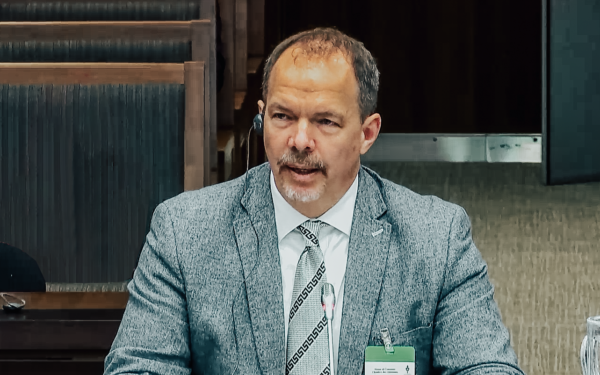Theresa Schumilas is a farmer, researcher and lead implementer on a CIRA Community Investment Program funded project changing the game for small-scale farmers in Canada.
Theresa Schumilas is an organic farmer and researcher with Wilfrid Laurier’s Centre for Sustainable Food Systems. In researching sustainable food systems, she came across two issues: urban food deserts and isolation of farmers. With a new online tool, she aims to tackle them both.
A food desert is an urban area where residents have little or no access to stores and restaurants that provide healthy and affordable foods. Weekly farmers markets can provide access to healthy, local food in some urban neighbourhoods, however Schumilas says it’s often a difficult decision for farmers on whether to take part.
For some small and mid-sized farmers, the sales at farmers markets in sparsely populated areas are not worth the time and resources it takes to participate in them.
With support from CIRA’s Community Investment Program, the Centre is creating an online tool connecting urban food insecure communities with rural ecological farmers across the Waterloo region of Ontario. Schumilas’ approach aims to improve efficiencies for small-scale producers and enhance the digital experience for urban food consumers.
With the online farmers market, Schumilas partners with the Open Food Network (OFN). This open source digital platform allows consumers to shop for fresh products from a range of local producers, pre-order online and pick it up at a hub or dropspot. This way, the sales are coordinated beforehand and aggregated across many hubs and drop spots, making it worthwhile for the local farmers to make deliveries to the city. Not only do online farmers markets bring fresh food to neighbourhoods they also reduce the social isolation of rural farmers.
OFN is a global platform in operation in 12 countries now and currently being tested in Waterloo and in northwest Ontario for deployment across Canada. Schumilas was inspired while doing research for her doctorate in China by how technology platforms were being used to connect Community Supported Agriculture (CSA), ecological farms and food hubs – which led to her involvement with the Open Food Network in Canada.
In today’s world, computer code is as important to food sovereignty as seeds.
says Theresa Schumilas in a video about the path that led her from the farm to food security research.
The digital literacy gap
Schumilas says while Waterloo region farmers were initially thrilled about the online farmers market project and its efficiencies, there was a clear gap in their digital skills to be able to use the tool.
“Farmers are used to face-to-face markets, where you talk to customers, maybe write a brief description, show your product and that’s it,” she says. “Now they need to learn new online systems, marketing and online communications to keep up and many farmers have no experience in this.”
In CIRA’s report The gap between us: Perspectives on building a better online Canada, digital literacy for all Canadians was identified as a key component to ensuring Canadians have the skills to fully participate in Canada’s digital society. This is especially important for people in rural or remote communities, the report found.
Schumilas says access and digital literacy go hand in hand for these online tools to be effective. With so many small and mid-sized farmers struggling financially, Schumilas says it’s clear digital literacy skills are becoming essential across industries, including in the farming communities.
Schumilas notes the online famers market is a pilot project in Waterloo but it’s scalable as long as the network of farmers and the community is willing to participate. The project has already attracted interest across Ontario with plans to expand across the country.
Learn more about innovative projects changing the food industry in CIRA’s latest report all about the internet and food at www.cira.ca/food.
Erica works in corporate communications at CIRA. Her background is in writing and community relations in the non-profit sector. She is a graduate of Carleton University’s journalism program.




